Rountable for sustainable palm oil
Understand why people are not using the app
Is the palm oil present in your food products sustainable? Scan your everyday products with RSPO ScanApp, created by the Rountable for Sustainable Palm Oil.
Context
Palm oil perception in France
The topic of palm oil in France is complex. Nearly half of people (45%) have a negative view because of environmental concerns, and 35% because of social issues. Most people—88%—don’t know about sustainable palm oil, and 93% have never heard of the RSPO (Roundtable on Sustainable Palm Oil).
But when consumers learn about sustainable palm oil and the RSPO, many change their minds and start seeing it as a positive solution.
That’s why RSPO is launching the RSPO ScanApp in France. The app aims to:
- Raise awareness about sustainable palm oil
- Help shoppers check how sustainable the palm oil is in food products, so they can make more informed choices when buying.
RSPO ScanApp
RSPO is an international non-profit organisation founded to set standards for sustainable palm oil and promote its use.
This organisation has developed an application to scan everyday products and discover if they comply with RSPO palm-oil standards. In their view, it seems to be a good way to raise awareness, change sustainable perception and provide a service to consumer similar to Yuka.
2.3K
Downloads
3.1K
App users
1.9
Visits per users
5.6K
Successful scans
1.8
Scan per users
50
Campaigns
Objectives
We tested the app in a real-life situation with a panel of users in order to understand why this product isn't used by its community.
- Assess consumer perception of sustainable plam oil.
- Assess the value proposition and consumer perception of the application.
- Define the features they consider key vs gadget.
Methodology
We started by setting clear goals, writing a discussion guide, and recruiting a panel of testers. Once the team and test room were ready, we conducted individual interviews, taking time to have meaningful conversations with each person. After the sessions, we organized all the insights in Notion, sorted the information, and prepared a clear and structured document for RSPO.
Testing panel
The main users of the app are reducers (people who wants to reduce the consuption of Palm Oil).
We interviewed 7 people inclined to download the app after being exposed to the marketing campaign (users and non-users).
- 3 reducers : they aim to reduce their consumption of palm oil;
- 1 rejecter : he don't buy the sustainable palm oil;
- 1 consumer : he cook with palm oil at home;
- 1 sceptical : he is not sure and need more informations;
- 1 out of line : he don't understand the objective of the project.
Interview guide
To prepare for in-person interviews, an interview guide was carefully designed to ensure consistency across sessions while leaving space for open, natural conversation. The guide focused on key themes such as perceptions of palm oil, attitudes toward sustainability, and everyday product choices.
It served as a flexible structure to explore user experiences, uncover motivations, and gather valuable insights to inform the design process.
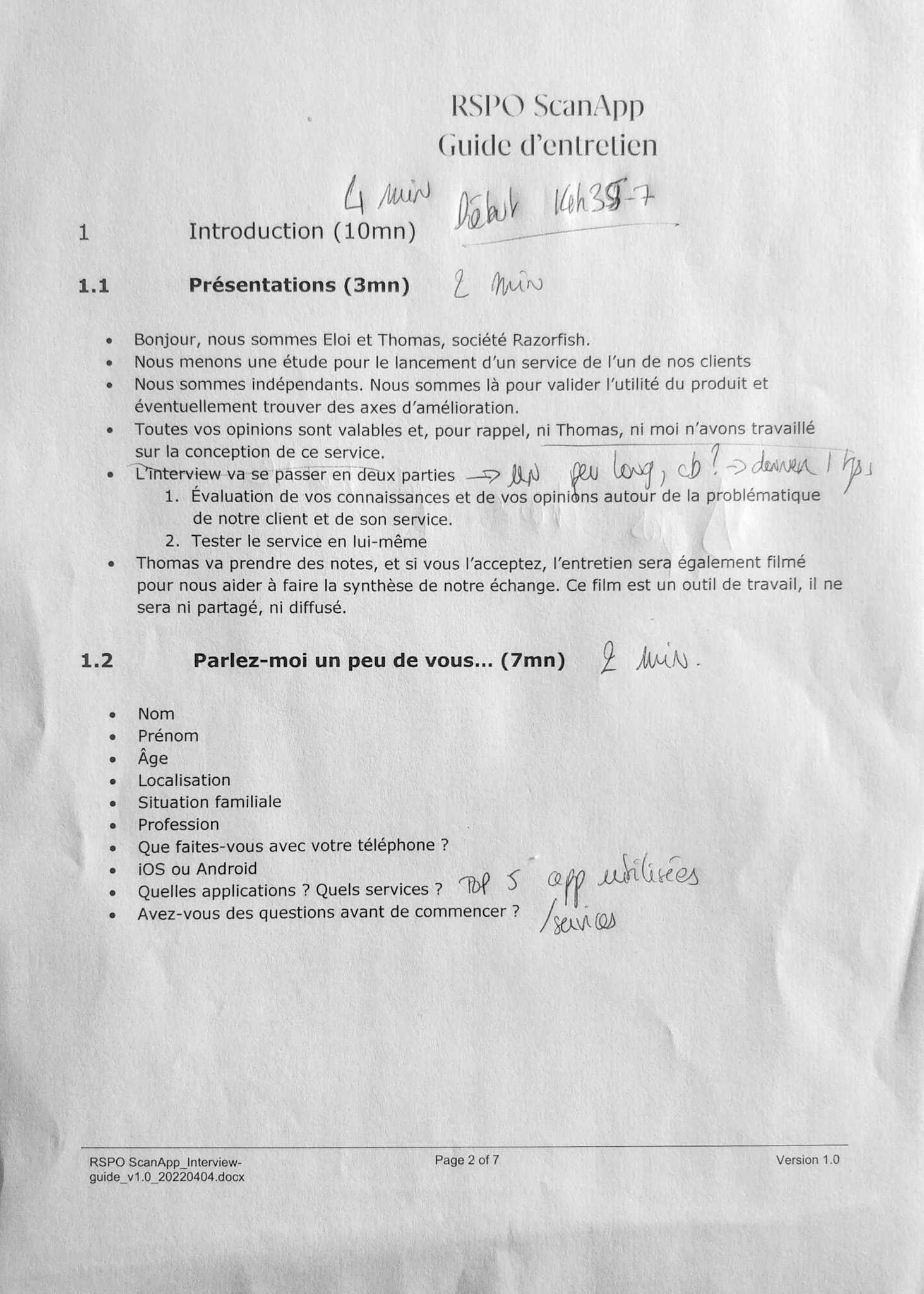
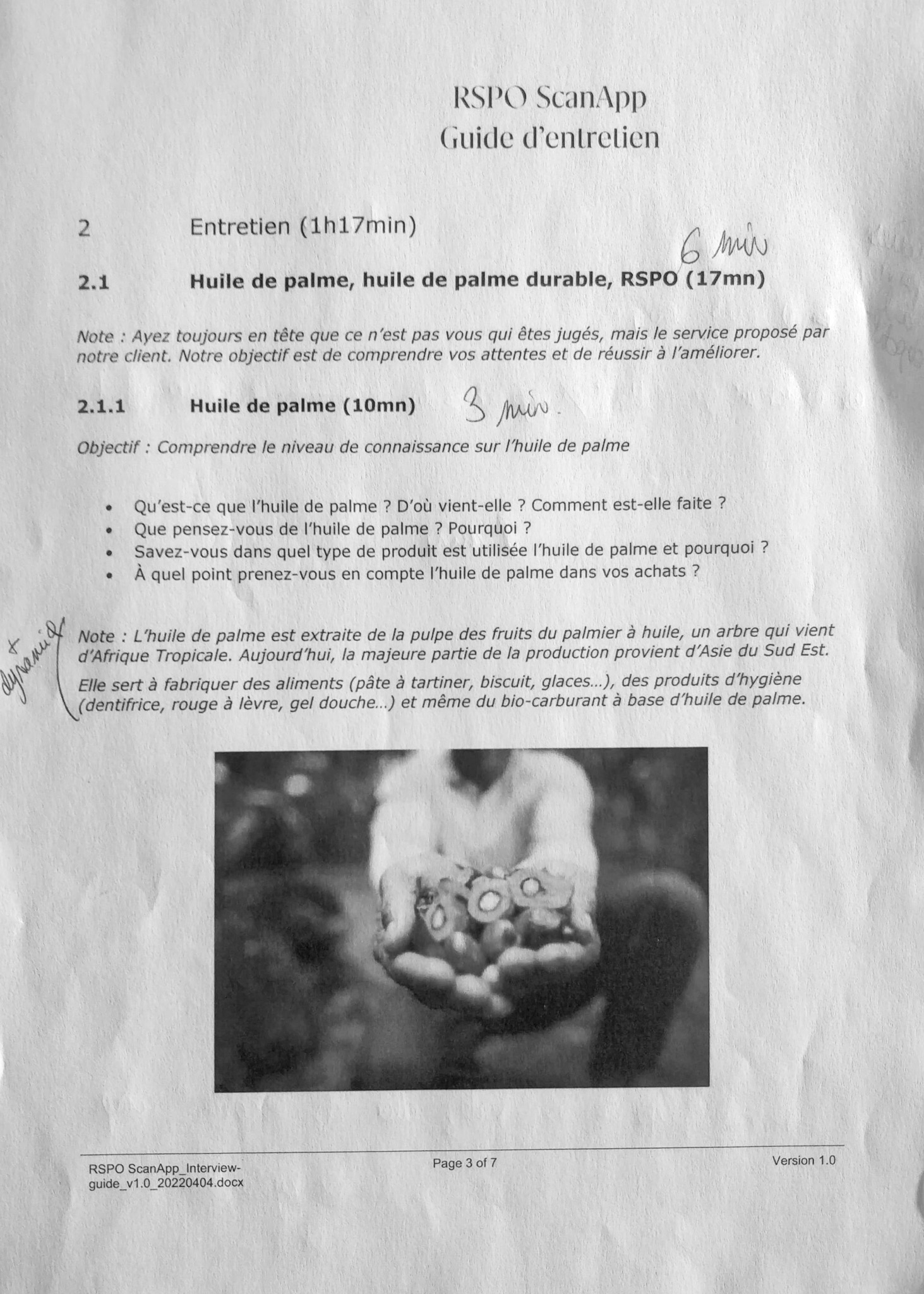
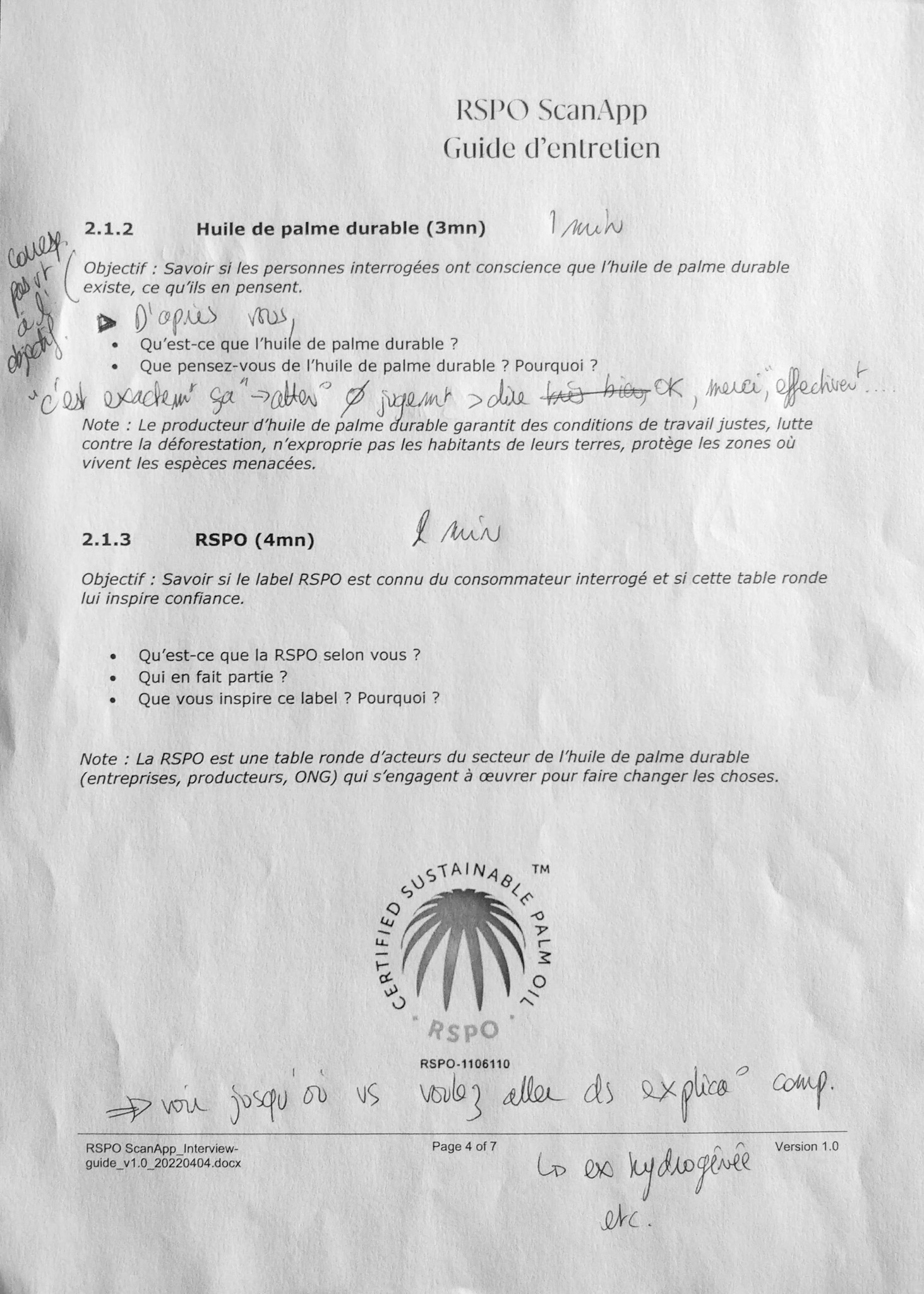
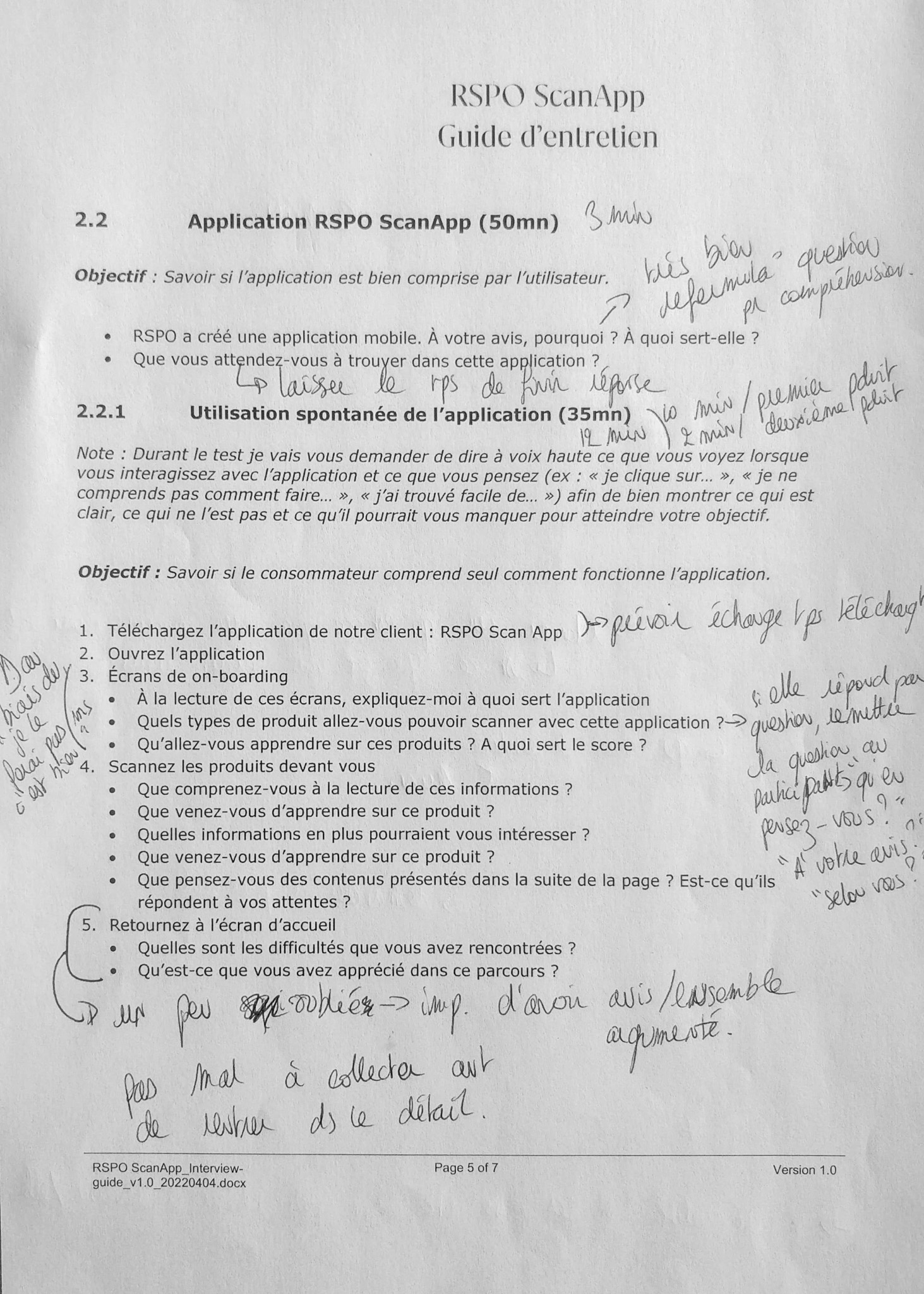
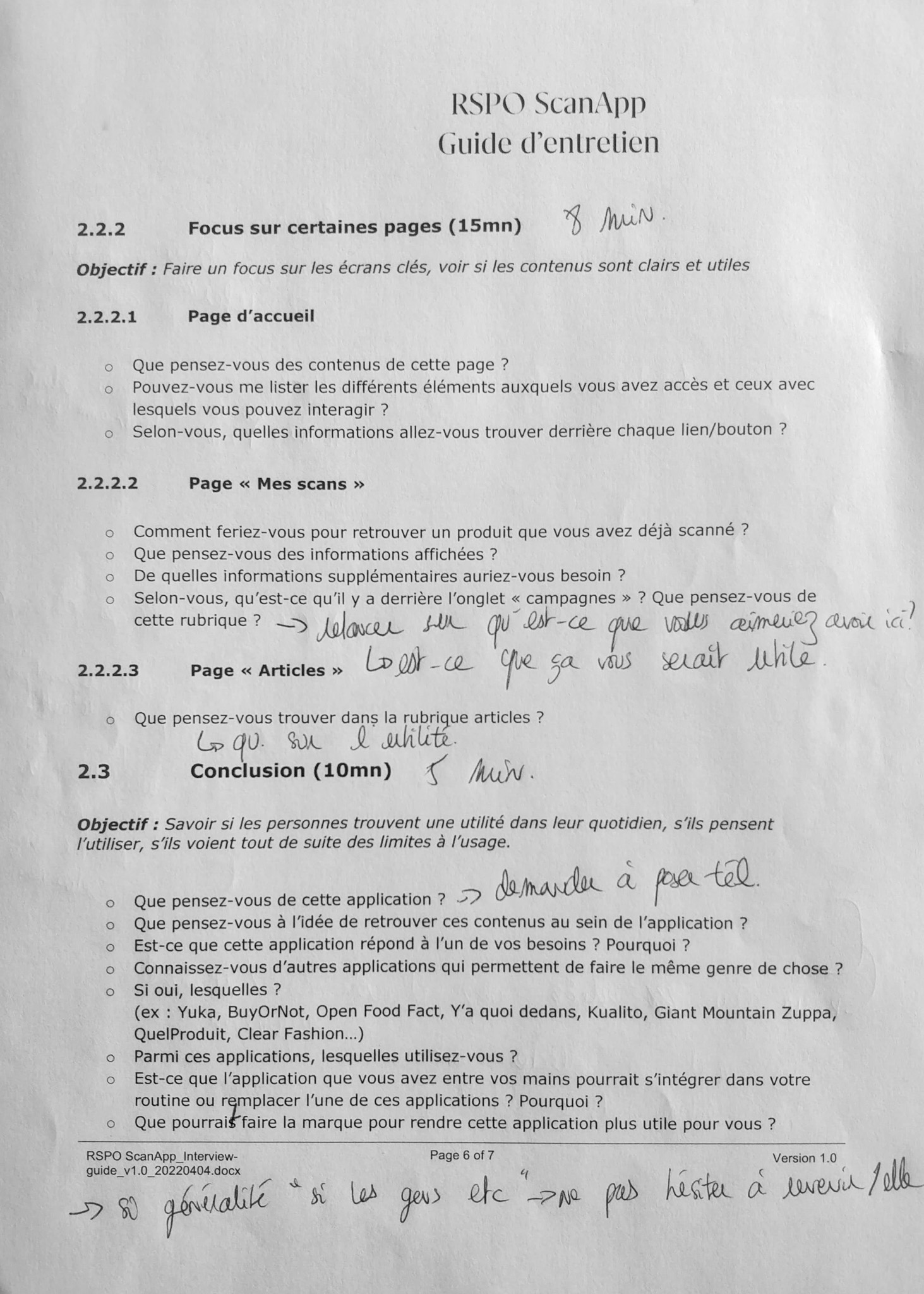
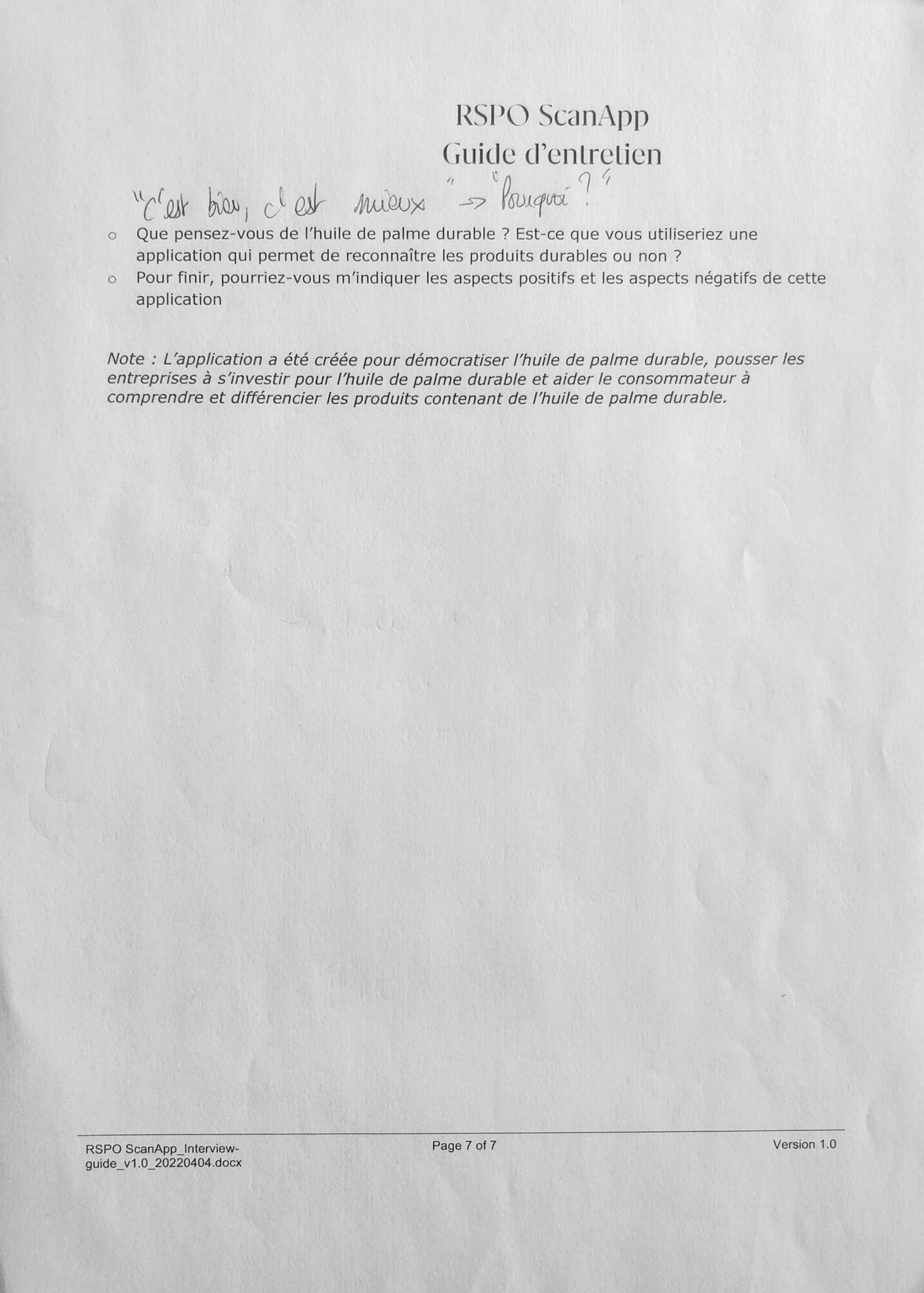












Interviews
Products
Before the test, we bought 5 products (referenced in the app or not) to test the app with them.
- Chipster;
- Icing Sugar;
- M&M's;
- Cookies
- Nutella. As Nutella is a product with a palm oil connotation, we only showed it at the end of the test in order to limit biases.
Meet with the users
Each interview was filmed and lasted between 01:15 and 01:45, depending on the user.
Notes were taken live by the project manager and I was able to analyse the result after each meeting in order to improve my approach and go beyond the initial request from the client.
- Presentation: Who am I? Who is our tester?
- Context understanding: Understand the level of knowledge about (sustainable) palm oil and about RSPO.
- Testing the app: Whether the use of the application is well understood by the consumer.
- Conclusion: Do they find the application useful? Will they use it? Why?

Analysis
I've analyzed the notes, the videos of each interview and I created a huge database in Notion. In this database I wrote the questions, the answers and I did take out the key words that could be recorded from one person to another.
Restitution
At the end of this project we made an english spoken restitution to our Italian clients. The overall UX of the app was appreciated. During the tests, users never felt lost, they gave us some recommandations to improve a few things but they were focusing on little details.
We tried to understand why there was a decrease in the use of the app, and we learned that our users were disappointed because the app only displays RSPO's members. As this is a young ONG, there is no label or any other clue to flag if a brand is part of RSPO or not.
The idea that came during the interviews:
- Showing more informations about the product (as Yuka is doing);
- Make the scoring criteria page more user-friendly;
- Recommend a better product in the case of a poor score;
- Get more informations about the encouragement campaign;
- Have independent expert advice;
- Have the support of well-known associations (e.g : WWF);
- Showing the label RSPO on the packaging directly.
My role during this project
I worked in autonomy under the watch of my team manager. I wrote the interview guide, proceeded the interviews, made the analysis and leaded the restitution with the help of the project director and the project manager.
Let's work together
Everything will begin around a coffee or a nice call to understand your expectations or the problems we can help solving.